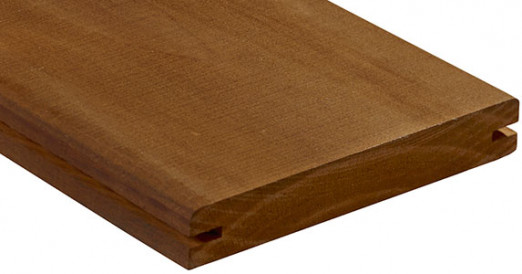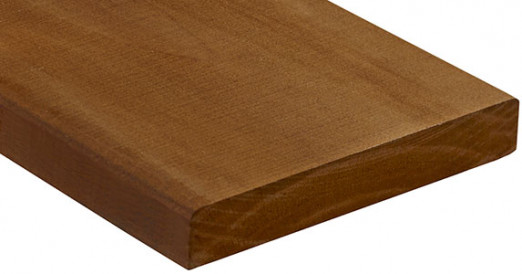The hurdle for establishing new woods in the window industry is extremely high but Kebony, the sustainable alternative to tropical hardwood, has overcome this obstacle and is now officially recommended by the Verband Fenster und Fassade (German Association of Windows and Facades, VFF).
For years Kebony has been used across the world in window installations. Now, following research and exhaustive testing by Menck in Hamburg, which recommended Kebony as a suitable product for the window industry, the wood has been recognised by the Institute for Window Technology in Rosenheim. The timber concedes with VFF’s recommendations, meets the requirements of the leaflet HO.06-4 and is suitable for gluing and coating.
Kebony is not a new wood species per se, but it is a relatively new wood product for the window industry. The Norwegian company based in Oslo developed the Kebony technology, an environmentally friendly patented process which enhances the properties of sustainably sourced softwood species by impregnating them with bio-based liquid furfuryl alcohol, a byproduct of agriculture. This process permanently modifies the cell walls giving Kebony premium hardwood characteristics, bypassing the need for tropical hardwood and creating a product that is sustainable, durable and cost effective.
The Kebony technology gives the wood technical qualities that are significantly higher than those of untreated pine wood. The bio-alcohol links penetrates the wood to reduce the absorption of moisture and keeps the equilibrium moisture content below 7% under standard conditions (20°C, 65% rel. humidity). Capillary water absorption is reduced to one tenth of the value for untreated wood and the maximum swelling from dry to saturation is reduced from 8% (untreated wood) to 4% (Kebony). In addition, as a side effect of increased stability, Kebony’s durability improves significantly, reaching class 1-2.
Kebony’s International Sales Director Adrian Pye commented: “Kebony has long been used in the window industry but this recommendation from the VFF will enable us to bolster our supply to this area of the market and grow our business internationally. This comes at a very important time for Kebony following the recently secured funding which will enable us to build a new factory in Belgium.”
Danish company Krone Vinduer sells Kebony windows in Europe, Norwegian manufacturer Førre supplies Kebony windows in Norway and NOKA provides Kebony windows to the German market, just to name a few examples of proven successful window suppliers across Europe.
-Angell-foto-AS-(3).jpg)

